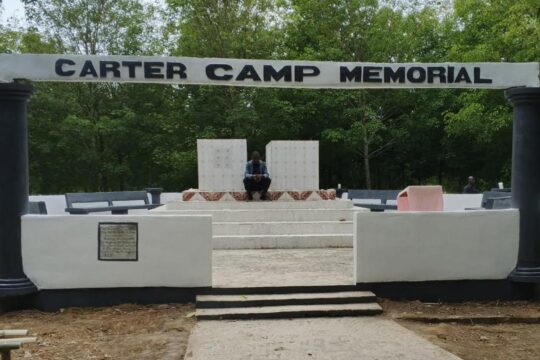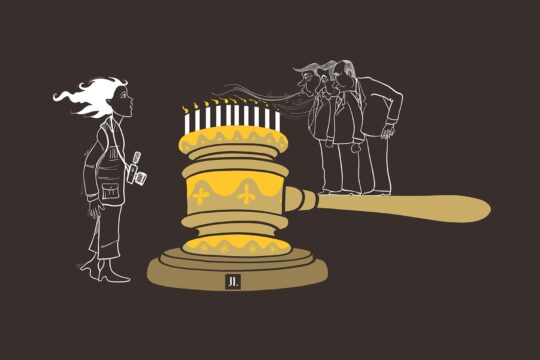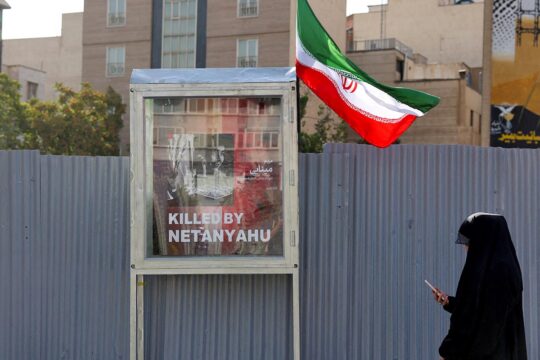Context: Civil War (1989 – 2003)
The legacy of Liberia’s nearly fifteen-year civil war lives on more than a decade after the war’s end. Liberia still struggles to prosecute those responsible for the violence, and develop inclusive reconciliation mechanisms. As one Monrovia resident said to IRIN in 2013: “[Life] is just the same as before, but now there are no gunshots.”
In 1989, the country descended into civil war when an armed rebel group led by Charles Taylor took much of the countryside by force, and toppled the capital of Monrovia in 1990. The country was unstable, without a functioning government, for most of the 1990s as rebels fought each other for control. There was a brief respite in fighting when Taylor was elected president in 1997, but by 1999 factionalism had ended the short peace period. This period is sometimes referred to as the Second Civil War.
Liberia’s civil war was characterized by gruesome violence. Charles Taylor’s National Patriotic Front of Liberia (NPFL) intentionally targeted Liberian civilians of certain ethnic groups, and many of his fighters were children. Taylor also supported the Revolutionary United Front (RUF) rebel group in Sierra Leone, helping them escalate another civil war which killed thousands of people. As President, Charles Taylor’s government and the rebel groups fighting the government were responsible for human rights abuses like forced recruitment of children, forced labor, summary executions, assault and sexual violence against civilians, according to Human Rights Watch. Civil society actors and journalists were frequently imprisoned and tortured.
According to the International Center for Transitional Justice (ICTJ), 250,000 people were killed and one-third of the country’s population was displaced during the civil war. The fighting in Liberia severely destabilized the country, but also had a long-term effect on the broader West African region. In addition to Sierra Leone, Guinea and Côte d’Ivoire were also involved in the conflict as sponsors of Liberian rebel groups, according to watchdog groups. The West African regional force ECOMOG, which intervened to stop the violence in the 1990s, actually contributed to increased fighting, according to Human Rights Watch.
In 2003, a comprehensive peace agreement was signed by all parties involved, which produced a truth commission and a UN peacekeeping force. This agreement was followed by the 2005 election of Africa’s first female president in the modern era, Ellen Johnson Sirleaf, who remains President today.
Recently, the spread of the Ebola virus has spurred discussion in Liberia about how close the country remains to civil war. In September 2014, Liberia’s information minister, Lewis Brown, told Al Jazeera that the Ebola virus should be seen not only as a public health challenge, but also as a political challenge, as the country still has not rebuilt the key institutions like hospitals that were destroyed in the civil war. Moreover, Brown said, the Liberian public’s trust in the government was further diminished by the government’s inability to mobilize resources against the epidemic.
Transitional Justice Mechanisms
Charles Taylor Trial before the Special Court for Sierra Leone: While Taylor has not faced prosecution for crimes committed in Liberia, he was prosecuted by the Special Court for Sierra Leone (SCSL) for backing crimes committed in that neighboring country by rebels of the Revolutionary United Front (RUF). Taylor’s support for the RUF was fuelled by his desire to control Sierra Leone’s diamond wealth, which helped him consolidate power in his own country.
Taylor was indicted by the SCSL in June 2003, but the arrest warrant remained secret until he agreed to leave power in August 2003, after being granted political asylum by Nigeria. In March 2006, he was nevertheless arrested in Nigeria and transferred to the custody of the Special Court for Sierra Leone.
His trial opened in June 2007, on charges of war crimes and crimes against humanity, including murder, rape, sexual slavery, cruel treatment and using child soldiers. The Dutch government agreed to host the trial at the premises of the International Criminal Court (ICC), following a request from Liberian President Ellen Johnson Sirleaf, who feared instability in Liberia if Taylor were tried in Sierra Leone. The Netherlands agreed on the basis that if Taylor were convicted he would serve his sentence elsewhere. The UK agreed to take him.
Taylor was convicted by the SCSL in April 2012 and in May he was sentenced to 50 years’ imprisonment. Although the Court found him guilty on all eleven counts brought against him, he was found guilty on the basis of “aiding and abetting” RUF crimes and participating in planning them, rather than command control as the Prosecution had sought. His judgment and sentence were confirmed by the SCSL Appeals Court in September 2013, and he is currently serving his 50-year sentence in the UK.
National Prosecutions: Although a possible War Crimes Court for Liberia has been mooted for some time, the country seems no nearer to setting one up, and there have been no national trials for serious crimes committed during the civil war. In addition, several suspected war criminals remain in positions of power. President Johnson herself has not been free from controversy over her past links with Charles Taylor.
In September 2014, Martina Johnson, a former rebel commander under Taylor, was arrested in Belgium, suspected of war crimes and crimes against humanity in Liberia's civil war. “This landmark case marks the very first time an alleged Liberian perpetrator has been criminally charged for crimes under international law committed in Liberia during the first civil war,” said Civitas Maxima, a Geneva-based legal advocacy group which helped bring the case against her. The organization said her arrest and investigation was possible because Johnson lives in Belgium.
In October she was granted conditional release, pending investigations. Martina Johnson must wear an electronic bracelet and is consigned to her home, although she may be authorized to leave for medical appointments.
In November 2014, another suspected Liberian war criminal, Alieu Kosiah, was arrested in Switzerland, again on the initiative of Civitas Maxima.
Kosiah is a former commander of the United Liberation Movement of Liberia for Democracy, ULIMO. He is suspected of participating in war crimes committed in the Lofa district of northwest Liberia between 1993 and 1995. Victims accuse him of having participated directly in mass crimes, including systematic killings targeting civilians, says Civitas Maxima. ULIMO occupied a large part of Lofa County during this period.
A Swiss judge confirmed Kosiah’s detention on November 13, 2014, for a period of three months. It has now been extended to May 9, 2015.
Truth and Reconciliation Commission (2006 – 2009)
Liberia’s Truth and Reconciliation Commission operated between 2006 and 2009. Its creation stemmed from the Comprehensive Peace Agreement (CPA) signed in Accra, Ghana, in August 2003. It was finally inaugurated in February 2006 after the election victory of President Ellen Johnson Sirleaf in 2005.
The TRC was passed into law in June 2005. It was tasked with investigating gross human rights violations and violations of international humanitarian law as well as other abuses, including economic crimes, committed between January 1979 and October 14, 2003. The Commission also had the power to investigate crimes committed prior to 1979 upon applications from individuals or groups.
It was given the power to recommend amnesties, among other things, for “full disclosures” and expressions of remorse for wrongs committed, provided that “amnesty or exoneration shall not apply to violations of international humanitarian law and crimes against humanity in conformity with international laws and standards”.
The TRC had nine Commissioners, assisted by a three-person International Technical Advisory Committee. It held hearings throughout the country, but faced numerous challenges, including low technical capacity and infighting between its commissioners. Two commissioners refused to endorse the TRC’s report when it was released.
The Commission’s final report is perhaps most well known for recommending that 49 people, including the current president, be banned from political office for their role in the conflict. The report also recommended the establishment of an extraordinary tribunal and a domestic criminal court to prosecute those responsible for atrocities and crimes during the war, the creation of a Reparations Trust Fund, and the promotion of women’s and children’s rights in response to the widespread use of sexual violence and child soldiers. As in neighboring Sierra Leone, the government has been slow to follow up on the TRC’s recommendations.






